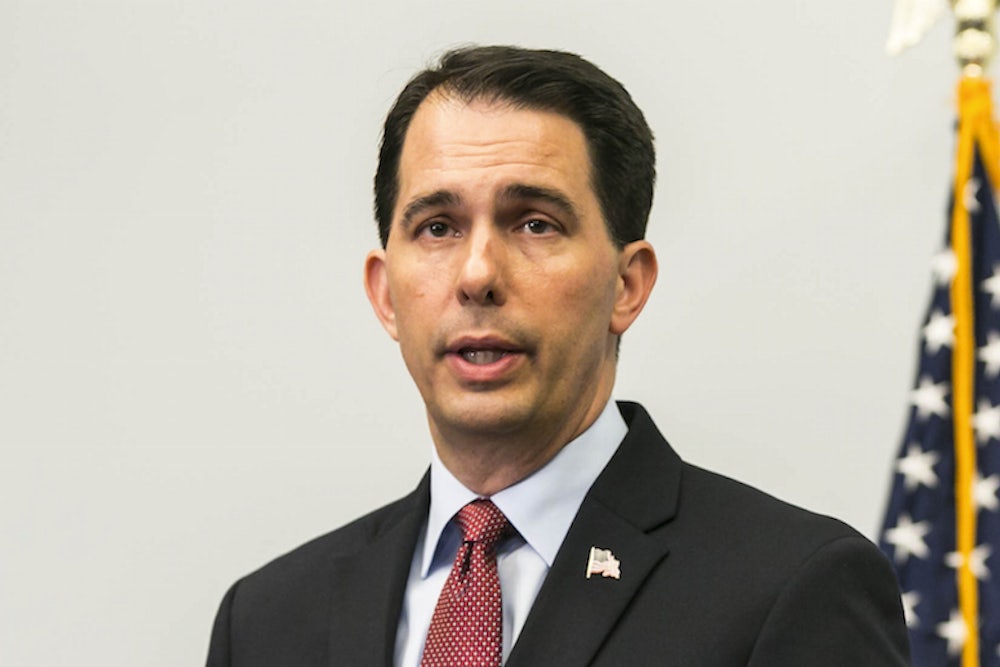On Monday evening, Wisconsin Governor Scott Walker announced that he was dropping out of the 2016 presidential race. “Today, I believe that I am being called to lead by helping to clear the field in this race so that a positive conservative message can rise to the top of the field,” he said. He claimed his decision was motivated by a desire to help voters “focus on a limited number of candidates who can offer a positive conservative alternative to the current front-runner,” a reference to Donald Trump.
That Walker would leave on that note is only natural: No candidate has suffered more, or more directly, from Trump’s insurgent 2016 run. Eight months ago, Walker, a deeply red governor in a traditionally blue state, was a favorite to win his party’s nomination. He had garnered a national reputation among conservatives, including the wealthy donor class, thanks to victories in dogged local fights over budget austerity and labor issues. His environmental agenda was as dangerous as any we are likely to see this campaign season. With a folksy, Cheez Whiz sort of charm, and a proven record of conservative achievements, he seemed the perfect vessel through which to unite the increasingly powerless Republican establishment with its increasingly volatile fringe.
This was supposed to be the model for the Republican Party's success in 2016 and beyond, as outlined in the GOP’s autopsy report following the 2012 election. “Republican governors, conservatives at their core, have campaigned and governed in a manner that is inclusive and appealing," the report stated. "They point the way forward.”
Across the board, however, the aversion to established Republican leaders is making its presence felt in the 2016 race. Of the nine governors to enter the field, only one, Jeb Bush, is currently polling within the top five, according to a CNN poll released on Sunday. Rick Perry and now Walker have dropped out, and three more—Bobby Jindal, George Pataki, and Jim Gilmore—may not be far behind. In the end, Walker’s demonstrable accomplishments paled in comparison to Trump’s bluster.
Trump certainly isn’t the only reason for the Walker campaign’s collapse. Liz Mair, a former Walker strategist, offered up a lengthy autopsy on Twitter, with likely causes ranging from poor staffing decisions to the candidate’s confusion as to his “real identity as a political leader.” Others have pointed to Walker’s seeming ignorance of foreign policy issues and his campaign’s myopic focus on Iowa. In what turned out to be a prescient dissection of his campaign last week, The Washington Post quoted one “major” Walker donor as speculating that “something’s missing in the demeanor” of the candidate. Last week, Walker himself, following his second consecutive debate-night disappearing act, was quick to blame the media.
Yet, in a race that has already discarded one of the other key premises of the GOP's post-2012 assessment—the need to reach out to Hispanic voters—perhaps it was only a matter of time before governors, too, were brought crashing down. If there’s anything to be learned from Walker's exit, it's that being thought of as a promising candidate may be the kiss of death in the 2016 Republican primary. As Doug Gross, a Des Moines, Iowa, lawyer and Republican activist, told Bloomberg shortly before Walker bowed out of the race, the Wisconsin governor “looks and acts and talks like a politician and that's not what people want."
